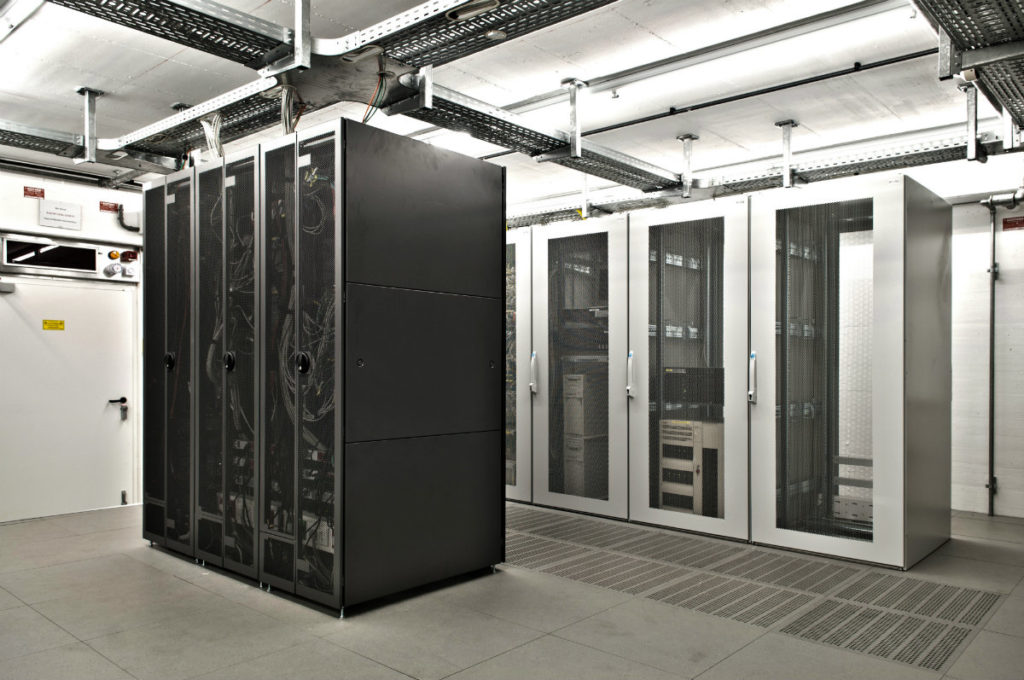Knowledge of HVAC systems is essential for data center workers since heating, ventilation, and air conditioning are so integral to the data center.
A good HVAC technician will be familiar with a wide range of HVAC systems, controls, and installation methods. The skills needed for a thorough knowledge of HVAC include:
- Knowledge of refrigeration
- Knowledge of pumping systems
- Understanding of electrical power and controls
Let’s start with refrigeration. Knowing how to read a refrigerant pressure gauge is essential in HVAC. Refrigerant gauges play an important role in keeping moisture and debris out of an air conditioning unit and also aid in finding leaks so knowing how to read one is critical.
Also, a quick note on safety: it’s important for an HVAC technician to understand relevant safety standards and protocols. Some of these protocols include the Occupational Health and Safety Act and environmental refrigerant laws.
Another important skillset you should have when it comes to HVAC in data centers is a knowledge of pumping systems.
An understanding of pumping standards and regulations as well as the different types of pumps is an essential skill on the job.
Other important pumping system skills, terms, and definitions:
- Understanding basic hydraulics and alternating current (AC) power
- Pump and system interaction
- Impeller trim—the diameter of the pump impellor required for proper performance
- Head—pressure required to overcome elevation, flow, and pressure, restrictions
- Title box—lists the pump manufacturer, model, size, etc.
- Flow—shows the best efficiency point: a combination of the right size, head, and horsepower
- NPSHR (Net Positive Suction Head Required)—minimum pressure required on the suction side to overcome pump entrance losses
You can use a pump performance curve to calculate and track the pump’s horsepower, head pressure, volume, impeller size, and other variables, to ensure the pump is operating at its Best Efficiency Point (BEP).
Many facilities are now using primary only variable speed pumping due to its efficiency, reduced construction costs, and fewer instances of failure. But whatever type of pump and system your facility has, it’s important to know it is functioning at its optimal level so that everyday processes continue to run smoothly, and ultimately, data center servers continue to do their job.
Another important skill when it comes to HVAC in data centers is knowledge of electrical power and controls.
Some basic terms to know regarding electricity and how it is measured:
- Amps: the actual electrical current coming through the power lines. Most outlets, circuit breakers, etc. are rated for the quantity of amps they use or can support.
- Volts: can be thought of as the “pressure” pushing amps through a designated path.
- Ohms: the resistance that slows electrical current
- Watts: the actual electrical power that is used by a server or other device.
It is important to be familiar with these terms, their definitions, and what they mean in practice because while working in a data center, you will need to make decisions such as how many servers you can hook up to a power strip based on the power strip’s amp capacity.
It’s also necessary to know the difference between AC (alternating current) and DC (direct current) and how they interact with each other and are converted. It should be noted that AC power is predominant in most of today’s data centers, but many are switching to DC power, due to DC power’s lower costs, greater reliability, and ability to more effectively power a larger area.
You should also be familiar with these five elements which are important to the electrical power of a data center:
- Air handlers/cooling/heating/ventilation
- Lighting
- UPS systems and generators
- Fire suppression systems
- Alarm systems
The bottom line is: it is important to consider the amount of power the data center is consuming and if it is efficient. Putting HVAC skills into practice will set you on the right track.
Thank you for following along in our Data Center Maintenance Series! You can read all the previous posts in this series on our blog, or simply click below.
Precision Maintenance in Data Centers
HVAC Chillers: Keeping Things Cool in the Data Center
Cooling Towers: Moving the Heat Away from Where it Isn’t Wanted
Data Center Fans: Blowing More Than Hot Air
Emergency Generators: Making it Possible for the Show to Go On
The Importance of Mechanical Skills in the Data Center: Precision Measurement
The Importance of Mechanical Skills in the Data Center: Lubrication
The Importance of Mechanical Skills in the Data Center: Precision Shaft Alignment
The Importance of Mechanical Skills in the Data Center: Belt Installation, Tensioning, and Sheave Alignment
The Importance of Mechanical Skills in the Data Center: Pump Maintenance and Overhaul
The Importance of Mechanical Skills in the Data Center: Bearing Replacement
Photo courtesy: iStockPhoto.com/a4ndreas



